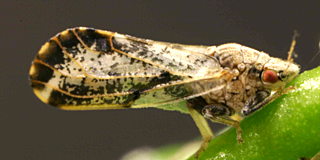Ag Official on Asian Citrus Psyllid in Tulare County
Marilyn Kinoshita, Tulare County Ag Commissioner, talks about the Asian Citrus Psyllid and how its affecting growers in the area.
“Our growers have the heavy commercial production as opposed to the ranchettes in San Diego Count, so we got more emphasis on spray treatments immediately after a find. We’ve had really good success rate, and so our trapping program is top-notch, so if psyllids are found, we have the ability to eradicate immediately and keep it under control that way,” said Kinoshita.
The Asian Citrus Psyllid, or ACP, is a tiny insect that acts as a carrier of the citrus disease Huanglongbing, also known as citrus greening disease. this bacterial disease is transmitted by the ACP, after it feeds on affected plant tissue.
Without proactive measures such as quarantine and eradication treatments, ACP could have dire consequences for the entire California citrus industry.
“We always knew that we were going to be ground zero. Because we’ve got the most packing sheds in the state, and the most juice facilities, and we’re receiving products from Mexico, Texas, Arizona, and Southern California and our growers need to stay diligent. We got all but 13,000 acres of citrus within the quarantine area, and so that can cause some problems with not having the entire county included,” said Kinoshita.
Citrus Greening Disease has only recently become a problem for California. The first infected plant was discovered in March 2012. It has still caused a concern in that short period of time, as the California Department of Food and Agriculture has found that here is no physical, cultural, or biological methods to completely eradicate ACP.
“So far we are dealing with it, and I have heard that this fall would kind of be the ‘trigger point’ that the Southern California counties saw at the two and a half year point of having Psyllids in their county. So we will see,” said Kinoshita.









